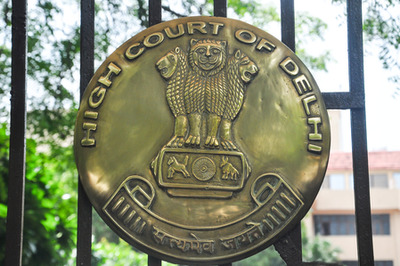New Delhi, Oct 30 (IANS) The Delhi High Court has held that a guilty plea cannot validate a prosecution that is barred by law, ruling that once a person has been convicted for an offence, they cannot be tried or punished again for the same act under a different case number.
While setting aside the second conviction of a life convict, a single-judge Bench of Justice Sanjeev Narula said: "A plea of guilt cannot confer jurisdiction. Once the bar under Section 300 CrPC or the rule against double jeopardy under Article 20(2) applies, the conviction is a nullity, irrespective of the voluntariness of the plea or the sufficiency of evidence.”
The Delhi High Court noted that the petitioner, Subhash Pahwa @ Subhash Chander, had already been convicted in 2014 under Section 411 of the Indian Penal Code (IPC) for possessing a stolen Ertiga car recovered from Dwarka, and was later convicted again in 2015 for the same recovery under another FIR. The second conviction, though based on a guilty plea, was found to be “jurisdictionally void.”
“The subsequent conviction… rests on the same Dwarka recovery of 11th February, 2013 that had already formed the basis of his conviction dated 26th November, 2014,” Justice Narula observed, adding that the later prosecution “was barred by Article 20(2) of the Constitution and Section 300 CrPC.” “Applying the test of sameness and the W.P.(CRL) 3143/2023 Page 17 of 20 consequence test, the subsequent prosecution and conviction were without jurisdiction. The later conviction thus stands vitiated by Article 20(2) and Section 300 CrPC,” said the Delhi High Court.
It further explained that the principle of double jeopardy protects against multiple prosecutions for the same offence or on the same facts, and said: “The State cannot repeatedly prosecute or reinvestigate a person for the same act or incident merely by altering the statutory labels or registering a new FIR.”
Justice Narula termed that the Magistrate’s act of recording a guilty plea without deciding the accused’s objection under Section 300 CrPC “was a serious irregularity.”
“Recording a plea of guilt without first determining a jurisdictional objection was a serious irregularity… Since the prosecution itself was barred, the conviction was rendered void ab initio,” ruled the Delhi HC. In effect, it quashed the 2015 conviction under Sections 411 and 482 of IPC, directing all authorities, including the police and jail records, to make necessary corrections within four weeks.
Justice Narula further directed the Sentence Review Board (SRB) to reconsider the petitioner’s case for premature release, observing that “where multiple proceedings stem from the same factual episode, authorities must avoid treating that single occurrence as multiple adverse antecedents. The law penalises discrete offences, not overlapping narratives.”
Justice Narula concluded that “this jurisdiction corrects what the law forbids; it does not re-try what the law permits,” affirming that constitutional protections against double jeopardy cannot be circumvented by procedural shortcuts or by the accused’s own admission of guilt.
“The SRB shall reconsider the petitioner’s case for premature release within eight weeks…..In doing so, the SRB shall (i) treat overlapping strands arising from the single Dwarka recovery dated 11th February, 2013 as one antecedent rather than multiple, and (ii) render a reasoned decision,” directed the Delhi High Court.
--IANS
pds/pgh
You may also like

BBC Celebrity Traitors fans in tears as 'iconic' star eliminated before final

Claudia Winkleman accidentally 'drops clue' about Cat Burns in Celebrity Traitors

'The council told me to take down a flag - I have put up a huge 100ft Union Jack instead'

When is BBC Celebrity Traitors final on?

Kanpur: Man killed over Rs 40 lakh insurance money; mother among 3 held







